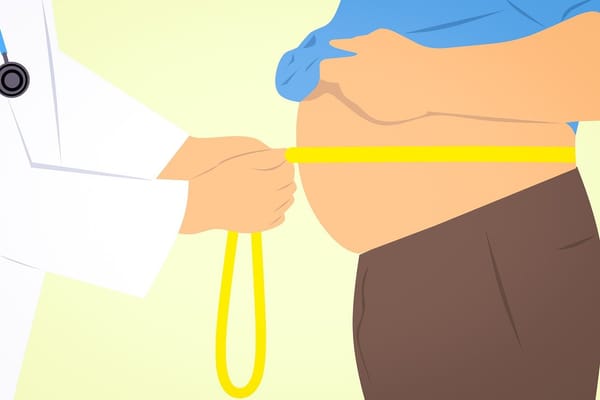Ready to start intermittent fasting? We break down everything you need to know to get started on the right fasting plan.
Intermittent Fasting for beginners may be kind of scary at first. You might be wondering if time-restricted eating is right for you and your lifestyle.
First off, there are many different methods for intermittent fasting so you should be able to find one that suits your needs.
Read through this blog post on intermittent fasting now for all the information including my expert tips to help you get started successfully on your intermittent fasting routine today!
If you're like most people, the word "fasting" probably conjures up images of deprivation and hunger.
However, intermittent fasting (IF) is a very different kind of fast. Intermittent fasting is not about going without food for long periods of time; instead, it's a strategic way of eating that can offer many benefits.
Intermittent fasting can help you lose weight, burn fat, improve your mental clarity and focus, reduce your inflammation, and more.
If you're new to intermittent fasting, this blog post will give you everything you need to know to get started.
We'll cover the basics of how intermittent fasting works, the health benefits it offers, and some simple tips for getting started with intermittent fasting.
So let's dive in!
Guide to intermittent fasting and how it works?
Intermittent fasting is an eating pattern that cycles between periods of fasting and eating. It does not specify which foods you should eat; rather, it limits the window of time during which you can eat.
You eat your last meal at 7-8PM and don’t eat breakfast the next day (a 16 hour fast). You'll then eat your next meal after noon or 12PM. Simply put, you don't eat while intermittent fasting and you eat more calories during your eating hours.

Though the exact length of each period varies from person to person and between methods, a typical intermittent fasting plan would involve having an eating window of 8 hours and a fasting window of 16 hours or the 16 8 schedule.
During the period of intermittent fasting, one abstains from all food but can still have coffee or tea with no milk or sugar, water, and low-calorie beverages like paleo bone broth.
Intermittent fasting is believed to create metabolic changes that result in you losing weight and improving metabolic health.
Benefits from doing intermittent fasting also include increasing hormone sensitivity, improving insulin production so you can better balance your blood sugar levels, reducing inflammation throughout your body, improving gut health, and metabolism.
What happens during intermittent fasting?
While you are intermittent fasting your body goes into a state of ketosis. Which is a fancy word for burning fat as fuel instead of carbs.
Ketosis is a process in which your body doesn’t have enough carbohydrates stored to burn so it starts to burn fat while producing ketones, which are used for energy. This can help improve your insulin levels and blood glucose.
This can have profound benefits on your metabolic system and is one of the best benefits of intermittent fasting. As always it’s best to consult with your doctor before starting any intermittent fasting program.
Some other key changes that occur during intermittent fasting in the body include increased levels of growth hormone which has been shown to increase muscle development and burn stubborn fat stores, improved insulin sensitivity, which means your blood sugar becomes much better at regulating itself, and cell repair.
Mitochondria and cells undergo a process of cellular repair called autophagy where old and damaged cells are replaced with new healthy ones.
The benefits of intermittent fasting:
Intermittent fasting has many incredible benefits, both physical and psychological.
When done correctly, intermittent fasting can improve digestion and metabolism, help lower cholesterol levels, reduce inflammation, regulate blood sugar levels, boost brain health and mental clarity, suppress appetite, decrease blood pressure, and even aid in weight loss.

For those looking to get started with intermittent fasting, it is important to give the body time to adjust before going full steam ahead. The best way to do this is by simply cutting your eating window shorter each day until your body can adapt.
This can help you lose weight in a healthy time frame.
Intermittent Fasting can also be a great lifestyle choice for those who wish to increase their energy levels throughout the day and experience higher nutrient absorption rates due to the longer period of intermittent fasting between meals.
Key Benefits of fasting:
- Fat loss
- Improve Insulin Resistance
- Improve insulin levels
- Reduction in blood pressure
- Improved mental clarity and focus
- Cell repair and replacement
How to start intermittent fasting:
Intermittent fasting can help fuel your weight loss journey, but it's important to start safely and slowly. First, you'll need to choose the type of intermittent fasting schedule that works best for you.
There are different intermittent fasting plans such as a 16/8 split or time-restricted eating to allow you to decide when and how often to fast. So you don't eat while intermittent fasting in your 16-hour window.
Intermittent Fasting Schedules:
- The 16:8 (16 hour fast) method is the most popular. Eat your last meal at 8PM (as your fasting period), skip breakfast, and eat your first meal the next day at 12PM or after.
- IF 18:6 schedule: 18 hour fast and a 6 hour eating window.
- The 5:2 method is where you eat normally for 5 days a week and the other 2 days you cut your daily calorie intake by 20%.
- The 14:10 schedule is when you are fasting for 14 hours (fasting period), skip breakfast, then your eating window is 10 hours. For beginners, this schedule may be easier to stick to at first. Ultimately, I would get to the 16:8 method and stick to it.
Once you’ve decided on which of the intermittent fasting plans fits your lifestyle, build up the duration of your fasting over time. Start with shorter fasts and ease your body into longer fasts as needed.
During intermittent fasting, make sure to not go overboard—eating beyond what’s comfortable is not good for your body. Also, prioritize hydration and get plenty of rest so you can successfully tackle intermittent fasting!

Find Motivation:
What is motivating you to start on this journey? Find one of the intermittent fasting plans that suit you and get fired up for your new healthy lifestyle. You're about to upgrade your health and take your well-being to another level.
Build a Team:
Start with your doctor and health care practitioner. Make sure you are a good fit for an intermittent fasting schedule.
Find a buddy or partner to experience intermittent fasting with. You can act as an accountability coach for each other.
If you are trying to lose weight and improve your fitness you can enlist your personal trainer or health coach to keep you on track with your lifestyle.
Be Prepared:
The first few weeks of fasting could potentially be a little rocky. That's why it's best to be prepared. Remember, to stay calm and stay the course. It's worth it!
Some things you might experience within the first few weeks.
- Increased Hunger
- Irritability
- Increased tiredness
- Increase in feeling cold
- Increase in headaches
These things will likely go away once you stick to your intermittent fasting schedule for at least two weeks. You can use things like black coffee to blunt your hunger in the mornings which will help.
Intermittent Fasting: Expert Tips
Intermittent fasting can be challenging for beginners, as it requires a major lifestyle change and dedication to this new diet regimen.
However, with these easy tips, anyone can start and be successful with intermittent fasting.
First, it is important to stay hydrated while intermittent fasting as an important way to improve energy levels during the fasting window.
Additionally, people should find recipes and meal plans that will fit within the fasting windows. Lastly, it is essential to listen to the body - if feeling lightheaded or excessively sluggish during a fast then shorter fasting windows or introducing more nutritious meals may be beneficial.
With these simple tips in mind, intermittent fasting can become possible and enjoyable for any beginner.
Dr. Steve’s Intermittent Fasting Bonus Tips:
- Focus on feeling good and improving your health as your top priority. When you focus on your health and how you feel it makes weight loss almost effortless. When solely focused on weight loss there are a lot of variables and looking at the scales frequently can sometimes be discouraging. Weigh yourself one time per week in the morning before consuming anything.
- Make getting good sleep a top priority. Shoot for 7-9 hours of sleep every night. Getting good restful sleep every night can be a game changer for your overall health and well-being.
- Stay Hydrated! Getting plenty of water and flushing your system is imperative for weight loss. With intermittent fasting, you will be ridding your body of unwanted toxins. Drink enough water to flush them out of your system.
- Move your body! If you are just starting, a walking program is a perfect solution.
- Eat delicious and nutritious foods! Grass-fed beef, colorful fruits, and veggies, good fat from real butter, coconut oil, and extra virgin olive oil. Eat organic as much as you can and stay away from processed foods.

Intermittent Fasting FAQ’s:
- Can I drink any liquids during my fast? Yes, drink water, black coffee, tea, or low-calorie bone broth. Do not add any cream or sugar to any beverage. Black coffee can be very beneficial in blunting your hunger.
- Can I workout during my fast? Yes, fasted workouts are completely safe. Recommended reading: Intermittent Fasting and Exercise.
- Is skipping breakfast unhealthy, I thought it was the most important meal of the day? No, it’s not. That was an old marketing gimmick started by the big cereal companies.
- Can I take my supplements while I fast? Yes, however, fat-soluble vitamins are better taken with meals.
- Will fasting cause muscle loss? No, studies have shown intermittent fasting to increase growth hormone which can help build muscle. Maintain a higher protein diet if you are trying to maintain or build muscle.
- Should my kids fast with me? No, intermittent fasting is not for children.
- Should pregnant women fast? No, pregnancy is complex and women who are pregnant should not fast.
Intermittent Fasting: Conclusion
In conclusion, intermittent fasting can be an effective tool in helping reach your health goals. Not only is it beneficial for physical health, but research has also found potential mental health benefits too.
To get the most out of intermittent fasting, it’s important to get the proper education. Remember to get motivated, build a team, and be prepared!
Start by familiarizing yourself with the basics and adjusting your lifestyle as necessary.
Take into account your dietary habits, activity levels, age, and gender when starting, and don’t forget to stay hydrated!
If you have any questions or concerns about intermittent fasting, don’t hesitate to contact us. With the right approach and mindset, you can make intermittent fasting a part of an effective overall health plan.









